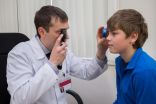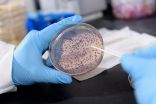(Press-News.org) ITHACA, N.Y. - Restoring oyster reefs is not an easy task, but by digging deep and examining centuries-old reefs, marine restoration professionals may stand a better chance at bringing oysters back, said a new Cornell University and Paleontological Research Institution (PRI) study published in the August issue of the Journal of Shellfish Research.
Stephen R. Durham, a Cornell doctoral student in the field of earth and atmospheric sciences, with Gregory P. Dietl, curator of Cenozoic invertebrates at the Cornell-affiliated PRI and a Cornell adjunct assistant professor of earth and atmospheric sciences, sought how geohistorical data - information gathered from sources such as fossils and the sediments - could be used in the conservation and restoration of oysters.
Durham and Dietl surveyed oyster biologists and restoration practitioners across the United States to assess their familiarity with data available from geohistorical records. Their research is published as "Perspectives on Geohistorical Data Among Oyster Restoration Professionals in the United States," in the journal.
"Oysters today face a variety of threats, including climate change, coastal development and harvest pressure," said Durham. "Understanding how oyster reefs functioned in the past, even before human influence, can help us decide what can or should be done to manage and restore oyster populations in the face of these diverse stresses. We were curious to know what oyster restoration professionals thought about using geohistorical data to do this."
By digging into an oyster reef, scientists can access the shells of previous generations from centuries - and even millennia - gone by. Shells offer many clues about oyster biology to restoration professionals, including how fast they grew, how long they lived and how oyster reefs functioned under differing climatic conditions.
Survey respondents recognized the potential of information from the past and expressed a willingness to use this data if it became available, particularly to bolster baseline knowledge of ecological conditions.
"When you're trying to assess the condition of an ecosystem, such as an oyster reef, you need some kind of baseline to compare to. Often in oyster conservation those baselines come from other natural, relatively undisturbed oyster reefs... but such baselines lack temporal context," said Durham.
"Providing baseline data is one area where conservation paleobiology may be able to help significantly - geohistorical records can provide local data on timescales ranging from decades to millennia that can help us understand the extent of habitat change," said Durham.
Conservation paleobiology - the application of data from geohistorical records to conserving biodiversity and ecosystems - has potential to save oysters.
"The survey results are encouraging for future data integration ... This collaboration between biologists and paleontologists will take time and patience, but the potential rewards are great," said Dietl, referring to the ancient oyster shells research, "It's time for us to put the dead to work."
INFORMATION:
Cornell University has television, ISDN and dedicated Skype/Google+ Hangout studios available for media interviews.
Washington, DC, September 1, 2015 - A simplified handwashing routine, with five steps instead of seven, helps to reduce sickness-related absenteeism for students with mild intellectual disability (MID), according to a study published in the September issue of the American Journal of Infection Control, the official publication of the Association for Professionals in Infection Control and Epidemiology (APIC).
The study was conducted in two special education schools in Hong Kong. Researchers from The Hong Kong Polytechnic University developed a 12-week handwashing intervention ...
September 1, 2015 - For women undergoing hysterectomy, removal of "hanging" abdominal fat and skin--a cosmetic procedure called panniculectomy--can be performed at the same surgery without increasing the risk of complications, reports a study in the September issue of Plastic and Reconstructive Surgery®, the official medical journal of the American Society of Plastic Surgeons (ASPS).
"This is among the best evidence to date regarding 30-day risk profiles, and the data suggests that the complication rates are comparable for patients undergoing combined hysterectomy ...
(Boston)--A gene linked in previous research, appears to predict more severe post-traumatic stress disorder (PTSD) symptoms as well as a thinner cortex in regions of the brain critical for regulating strong emotions and coping with stressful experiences. This study is believed to be the first to show that the spindle and kinetochore-associated complex subunit 2 (SKA2) gene may play a role in the development of PTSD.
Led by researchers at Boston University School of Medicine (BUSM), the National Center for PTSD and the Translational Research Center for TBI and Stress ...
The neutrino and its antimatter cousin, the antineutrino, are the tiniest subatomic particles known to science. These particles are byproducts of nuclear reactions within stars (including our sun), supernovae, black holes and human-made nuclear reactors. They also result from radioactive decay processes deep within the Earth, where radioactive heat and the heat left over from the planet's formation fuels plate tectonics, volcanoes and Earth's magnetic field.
Now, a team of geologists and physicists has generated the world's first global map of antineutrino emissions. ...
A new study has found that the occurrence of advanced forms of a diabetic eye disease remains low among children living with diabetes, regardless of how long they have had the disease or their ability to keep blood sugar levels controlled. Researchers are therefore recommending that most children with type 1 diabetes delay annual diabetic retinopathy screenings until age 15, or 5 years after their diabetes diagnosis, whichever occurs later. Their findings were published online today in Ophthalmology, the journal of the American Academy of Ophthalmology.
It is well established ...
A bacterium engineered to produce different pigments in response to varying levels of a micronutrient in blood samples could give health officials an inexpensive way to detect nutritional deficiencies in resource-limited areas of the world. This "bacterial litmus test," which currently measures levels of zinc, would require no electrical equipment and make results visible as simple color changes.
More than a billion people worldwide may be at risk for adequate zinc intake, but measuring zinc levels in blood samples currently requires sophisticated testing equipment not ...
In the "NeverEnding Story", Bastian feels so involved in the narration that he experiences the same emotions as the characters (and in the end he really enters the book). What happens to the main character of Micheal Ende's book is exactly what happens to each of us when we read a novel or a short story: we literally replicate the physiological processes and emotions of the characters described in the text. Francesco Foroni, research scientist at the International School for Advanced Studies (SISSA) of Trieste, already demonstrated this phenomenon a few years ago in a study ...
PULLMAN, Wash.--Washington State University researchers have found that the timing of an animal's sleep can be just as important as how much sleeps it gets.
Ilia Karatsoreos, an assistant professor in WSU's Department of Integrative Physiology and Neuroscience, shifted mice from their usual cycle of sleeping and waking and saw that, while they got enough sleep, it was of poorer quality. The animals also had a disrupted immune response, leaving them more open to illness.
Most sleep research focuses on the effects of sleep deprivation or the overall amount of sleep an animal ...
A multi-disciplinary group of European researchers spanning natural science, socio-economics and law have joined forces to assess the current landscape of deep-sea research and investment in Europe. Once considered remote and inaccessible, commercial interest to exploit the deep sea (1) is rising due to economic drivers and technology developments. However, exploitation activities in the deep sea remain highly contentious, particularly regarding the potential risks and environmental impacts associated with such activities. A consultation of deep-sea stakeholders spanning ...
New research from LSTM has revealed precisely how insecticide-treated bed nets are so effective against malaria mosquitoes.
Communities in the poorest countries are the most vulnerable to malaria and 90% of all malaria deaths occur in Africa. Safe, simple and affordable, long-lasting insecticidal bed nets (LLINs) are very effective in preventing malaria and have played a major part in reducing malaria deaths in Africa by over 50% since 2000 (WHO). However, as very little is known about how mosquitoes interact with nets or how LLINs do their job so effectively, how they ...

